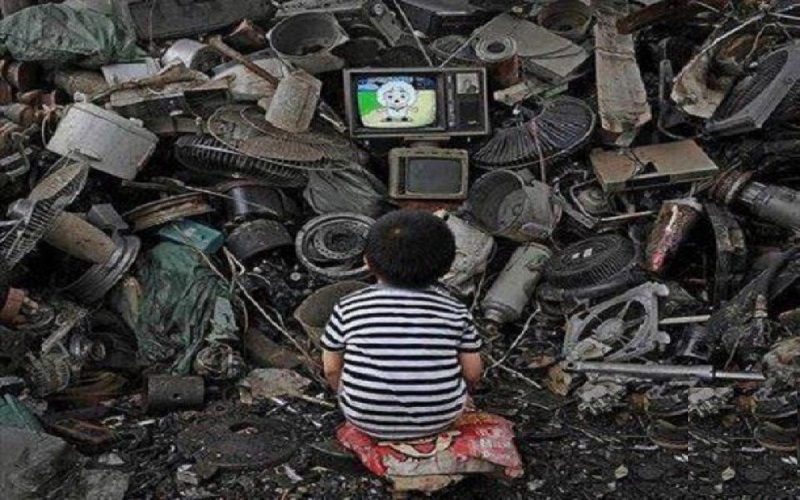At a ceremony held in Isfahan on Thursday, May 17, Ali Agha Mohammadi, a member of the Iranian egime’s Expediency Discernment Council said that nearly 20 million of the country’s 85 million population are deprived of basic living facilities such as housing, employment, education up to the age of 12, health, food, and clothing. He also said that 2,020 neighborhoods across the country are deprived of basic living facilities.
According to Agha Mohammadi, 874,000 people between the ages of 6 and 17 have been forced to drop out of school.
It is worth noting that this number only includes children who have been identified and does not include child laborers or homeless children living in the streets.
According to Article 30 of the regime’s Constitution, “The government is obliged to provide free education and free education facilities for all citizens up to the end of high school, and to extend higher education facilities to the limits of the country’s self-sufficiency, free of charge.”
Agha Mohammadi also said that 1.8 million people in Iran are “unable to empower themselves and these individuals will be covered by support institutions.” These individuals are unable to work due to age, health, or other reasons and must be covered by social insurance.
According to a report by the Research Center of the regime’s Majlis (parliament) published in February, the number of people living below the poverty line in Iran has increased by ten million in a decade. The report shows that the population living below the poverty line was around 16 million in 2011. At the end of 2021, however, this population had increased to over 26 million.
According to statistics from the regime’s Ministry of Cooperatives, Labor, and Social Welfare, which the Research Center report was based on, the majority of this population has been added in the years 2018 and 2019. Based on these statistics, in Iran one out of every three people lives below the poverty line.Iranian workers, among other sectors of the society, have been protesting their poor economic circumstances for years now. The regime’s semi-official ILNA News Agency, in a report published on May 13, discussed the Ministry of Labor’s policy regarding one of the Iranian workers’ important demands of workers, being an increase in wages. The report compared inflation and the cost of living in three areas: housing, food, and transportation, with the wages of workers.

“While a minimum of 30 percent inflation has been imposed on the lives of families, there is no sign of the fulfillment of economic ministers’ promises during the wage negotiations of the Supreme Labor Council, and more importantly, in such situations, the Minister of Labor explicitly states that the reform of salaries is not currently on the agenda,” the report reads in part.
The report concludes that a minimum of 30 to 40 percent inflation has been imposed on the livelihood basket of working-class families. A 30 percent inflation in food, 100 percent in housing, and at least 40 percent in transportation has been imposed on low-income workers and households. According to the ILNA report, “if a precise survey is conducted in the field of medicine and treatment, we will witness at least a 30 percent inflation in the cost of commonly used medicines.”
“When about 60 percent of employed workers in Iran receive a monthly salary of 80 million rials (approximately $154) at best, and with that amount, they cannot even rent an average 70-square-meter apartment, not only in Tehran but in many other cities, how can workers make ends meet and lead at least a dignified and decent life?” the ILNA report asks.
Unbridled inflation, no salary raises
ILNA also referred to the statements of Supreme Labor Council who promised a 27 percent increase in wages to “labor representatives” if the inflation is controlled. However, this promise is being ignored while inflation remains uncontrolled.
“The Supreme Labor Council, in alliance with the employers, has given the greatest profit to capitalists by keeping wages low and labor force cheap” and “preventing the founding of independent and national labor unions,” according to Boram Hassani-nejad, a labor activist and former secretary of the Miners’ Union of Chador Malu in the city of Yazd, central Iran.
According to the latest estimates, Iran’s point-to-point inflation in March reached 68.7 percent and is one step away from 70 percent. This is the highest point-to-point inflation recorded in at least the past 32 years. The question is whether, given the current inflation and the 200 million rial (approximately $383.50) poverty line and 80 million rial salaries (approximately $154), is the number of people deprived of necessities the same as the figure announced by a member of the regime Expediency Discernment Council?
In response to a question of how real is the announced figure of 19.7 million people who are deprived of basic necessities of life such as housing, employment, education up to 12 years, health, food, and clothing, Hossein Raghfar, an economist linked to the government and a member of the faculty at Al-Zahra University said, “The number of people currently living in absolute poverty doesn’t appear to be less than 50 percent of the country’s population. This means that these people do not even have access to the minimum requirements of human life.”
“The government is planning to submit a plan to the parliament under the title of ‘Inflation Control and Production Growth,’” Raghfar added. “However, what has been proposed will only make conditions harder for the people and will not lead to any positive change in the economy. Such vague plans cannot be expected to bring about any change, and the current imbalance will continue with no hope in sight.”


